Glenn Greenwald On Chelsea Manning, Donald Trump And How Journalists Should Handle 'Illegal' Leaks
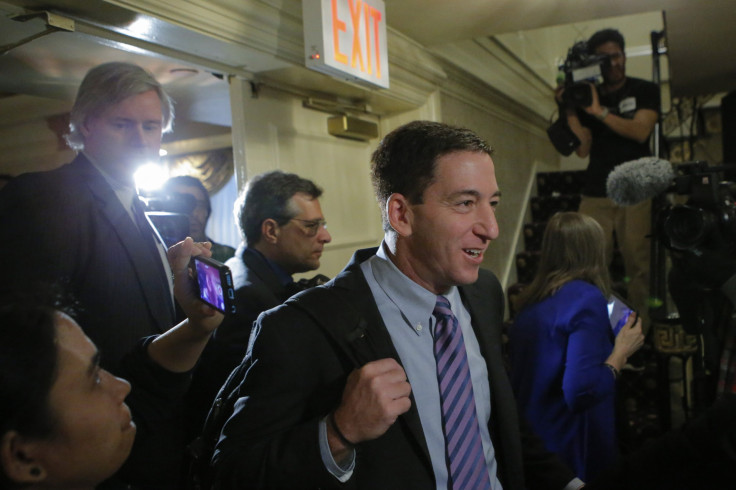
With the rise of the Internet, American politics has been profoundly shaped by leaks of digital information. Troves of leaked documents detailing the actions of national security agencies and a surveillance apparatus have prompted scrutiny of everything from war policies to privacy laws. Then in 2016, leaks of emails from Hillary Clinton campaign officials generated headlines about her potential presidential agenda, and whether or not she would live up to her public rhetoric. Most recently, leaks have created a steady stream of negative stories about the Trump administration.
How should Americans see leaking and whistleblowing? How should journalists deal with leaked information? Should they publish leaked documents regardless of what a leaker's motives may be? Or should they suppress leaked information if they disagree with the leaker’s motives? I recently discussed these questions with Pulitzer Prize-winner Glenn Greenwald — the journalist who published National Security Agency documents leaked by Edward Snowden. What follows is a lightly edited transcript of our discussion:
Sirota: Why do you believe Chelsea Manning is a hero?
Greenwald: If you think about it, what's most amazing about how much she resonates, how much she inspires people, how much of a connection people seem to have to her, is that unlike with, say, Edward Snowden, who is able to give interviews, and be very public in the media, and have people hear from him and see who he is, she was basically disappeared from the very first moment that she was arrested. She was not allowed to speak publicly. She was in a military justice facility. They very tightly controlled who her visitors were. She gave no interviews, no media were allowed to talk to her. She was really literally never heard from.
In fact, we published some recordings, some covertly-made recordings against the court's rules years later when she had her trial. It was the first time anyone ever even heard her voice. Yet, I go around the world and I mention her name, no matter where I speak, instantly there's this sustained standing ovation that's very emotional and very passionate.
Ultimately what I actually think is that what she did that probably will have a more enduring impact on how she's perceived and how she affected people is not the initial decision to leak all those documents, as critical, and important, and noble as that was. I actually think that the way in which she has handled her extremely harsh imprisonment with such dignity and such purpose, and specifically the way that literally the day after she was sentenced to 35 years in prison she issued this very bold statement announcing her transition in the middle of being in Kansas, in the custody of a military brig, and military officials, was just so moving in its authenticity.
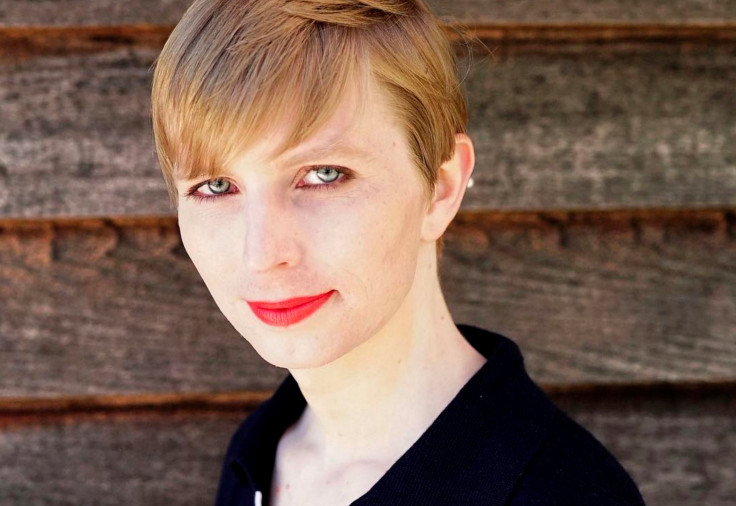
Then she's had these struggles that were well-documented where she wasn't getting the kind of support she needed for this transition and tried to commit suicide a couple times. I think people just overall feel maybe a little bit of some sympathy for her plight, but much more so, I think, just her strength of character has been so manifest, so visceral throughout all this.
Sirota: How do you think a government should treat people who violate classification laws and secrecy laws, even if they are violating them in the spirit of trying to do good?
Greenwald: Let me address the argument that typically is made by these national security insiders, which is that if you're inside the government and you discover information or evidence of wrongdoing or lawbreaking, you have whistleblower protections. There are mechanisms and procedures that have been created to enable you to bring to the attention of supervisors, or members of Congress, what it is that you found.
But this is such an empty offer. It's such a symbolic gesture at best. Because in the case of Manning, what she revealed was not anything illegal. It was a whole range of war crimes. Or at least not domestically illegal. They were war crimes. They were deceit of the public. They were complicity with foreign corruption.
Imagine if she brought these things to her supervisor, like her sergeant or a lieutenant in Iraq, and she said, "I've seen evidence showing that civilians are being killed recklessly," or, "I've seen evidence that we're detaining people, not for terrorism in Iraq, but for political dissent." Who didn't know that inside the structure in Iraq? There were no laws broken. They probably would have punished her had she done that.
The same with Edward Snowden. When he discovered this mass surveillance system that the public didn't know about, the scandal of it wasn't that it was illegal. There were small parts of it that ended up being declared unconstitutional, particularly the parts about how the NSA was spying on Americans, but the mass surveillance system itself was permitted by Congress. It was authorized by D.C. It was something that people inside the government wanted. They just hadn't told the public about it.
If he had gone to his supervisors at NSA, or to [California Sen.] Dianne Feinstein, and said, "Oh, I discovered that the government is keeping records of everyone who is talking to everybody else," they already knew that. They would have probably called the FBI on him, which has happened a lot in whistleblowers. In these cases — whistleblowers who aren't necessarily discovering garden-variety corruption, like, "Oh, I found a document that this person is stealing government funds or this person is breaking the law," but instead, these kind of mass programs that the public doesn't know about, but should know about — their only alternative, their only recourse, is to find a way to make it public through journalists, or media outlets, through places like WikiLeaks.
I think the question then becomes, "Well, how do you assess them? How do you judge them? How do you treat them?" What's so offensive about prosecuting them under espionage or calling them traitors is we have cases that do fall under those titles that are classic examples of it. Aldrich Ames or someone in the CIA finds a bunch of secrets and they don't want to inform the public about it. They want to sell it to a foreign enemy in order to enrich themselves or undermine the United States.
In the case of [Daniel] Ellsberg, in the case of Manning, in the case of Tom Drake, and Snowden, whether you disagree with some of the specific choices they made, there's no question that all of them are motivated by acting within the public interest. They all took steps to be as careful as they could.
Snowden didn't disclose any documents himself. He went to reporters. Manning only took low-level, classified and secret documents. Nothing top secret. Ellsberg worked for the New York Times. In everything that they did, you can see their intent is not to harm the United States. It's not to benefit themselves. It's not to betray anybody. It's to strengthen the democratic debate by getting this information into the hands of the public. That has to be the determinative factor in deciding how we treat them.
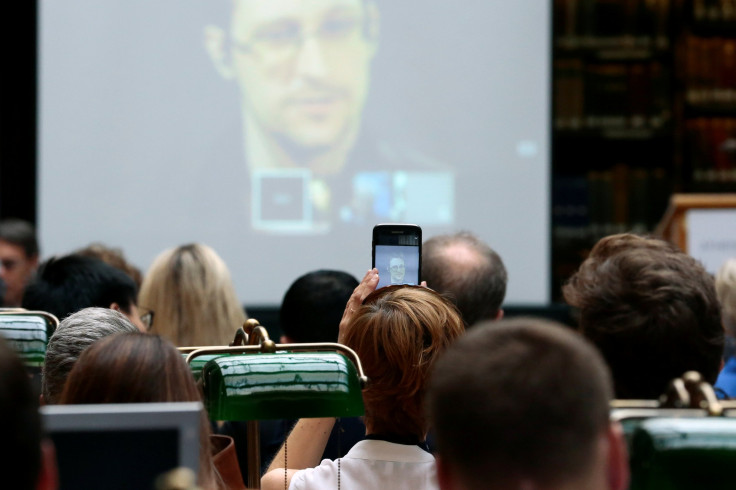
Sirota: How do you allow for that kind of disclosure without incentivizing all kinds of disclosure, whether it is public-minded or not?
Greenwald: I think one of the key problems, first of all, is that the law that is used to prosecute leakers and the whistleblowers is one of the most heinous laws ever enacted in American history. It's the 1917 Espionage Act, the purpose of which, under Woodrow Wilson, was to criminalize dissent, particularly dissent against America's involvement in World War I, and to prevent the public from learning what the Wilson Administration was doing.
The worst part of this law is that everybody loves to say, "Oh, if Edward Snowden is such a hero or so brave, he should come back to the U.S., and face the music, and go into court, and argue to a jury of his peers that he was right to do this because the public should have known about this information." The problem with that law is that under the law, that's not a defense. There's no defense, in fact.
If you leak information that the government has labeled classified, it's strict criminal liability. You are guilty of a crime. You have no opportunity to say, "This information should never have been classified in the first place. It was only classified to cover up official wrongdoing." There's no way within the legal system to evaluate the intention that someone had and whether it was justified. That's the first thing that needs to be done is to ensure that someone in those positions of being a defendant who has done this has an opportunity to argue that they did it for just reasons, for good reasons.
Then the other aspect of it has to be intent. There has to be an intent component. We have to distinguish between whistleblowers who are acting with the intention of strengthening democracy and informing the public, versus traitors who are acting for their own personal enrichment or to harm the United States in order to benefit one of its foreign adversaries.
The law allows for neither of those. If you have those in the law, you would then deter the kind of cases you're talking about, because people who weren't well-motivated, who didn't act carefully or with good intentions, would still be easily convicted.
Sirota: Chelsea Manning had the disclosures that she had. I think more people, certainly than at the beginning, have been able to look back at those disclosures and say, "Those really served a really important public good." I think the same thing, by the way, has happened with Edward Snowden. Then competing with that, I think, is that you've seen the 2016 election and the leaks of the Clinton emails, which many Democratic partisans, I think, have viewed as an assault on the American electoral system by Russia or by whoever has leaked them to WikiLeaks. How do you think Americans now view whistleblowing and leaking in light of all this?
Greenwald: I think that's a fair observation and an important insight into how these issues have changed. I think there's always going to be two aspects to how these kinds of acts of mass whistleblowing are assessed.
On the one hand, you're going to have crass, partisan opportunism. That's just the nature of our political system. I always said if Edward Snowden had leaked during the Bush Administration as opposed to the Obama Administration, or had leaked during a Republican president, there would have been this 50-foot statue erected in his honor outside of 30 Rock in the MSNBC headquarters. But because he leaked during a Democratic administration, there were a lot of Democrats who hated him.
By contrast, if you go and look at how Daniel Ellsberg was talked about, who leaked about the Vietnam War under the Nixon Administration, even though the documents were also about the Johnson Administration, it was Republicans who led the way saying, "He's a traitor. He's working for the Kremlin." All of that. Democrats were largely supportive and Ellsberg to this day is a hero among anyone on the left and a lot of Democrats.
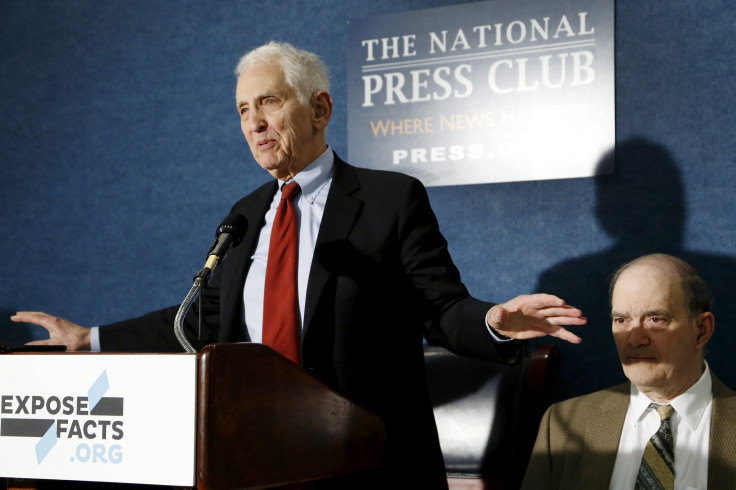
That's always an aspect of it, is partisan opportunism. Since the WikiLeaks disclosures in 2016 were overwhelmingly harmful to Clinton, and therefore helpful to Trump, Democrats did a radical reversal on how they view not just WikiLeaks, but the entire project of leaking.
On the other hand, now in 2017, almost all of the major news stories that the New York Times and the Washington Post are getting so much credit for publishing are nothing but illegal leaks of classified information coming from people within the intelligence community who dislike Donald Trump and want to subvert and undermine his presidency. Obviously, you have Fox News and the Republicans who are saying, "These people are evil and they should be in prison." But Democrats love these leaks. They can't get enough of them even though they're incredibly criminal.
Under the law, one of the most serious types of leaks you can do is when you disclose intercepts of conversations between an American and a foreign government. That's what somebody did when they leaked the contents of Michael Flynn's conversation with the Russian ambassador and other Russian officials. It was incredibly criminal and yet Democrats cheered it. I think part of it is just partisan opportunism. People like leaks when it helps them. People dislike leaks when it doesn't help them. I think you see a lot of that with WikiLeaks.
I think the other aspect of it is that people are very tribal, people are very nationalistic, and people are very authoritarian. There's this general belief that when the U.S. government says, "Documents are classified in secret and cannot be safely disclosed," there's just this authoritarian inclination to believe that it's true and, therefore, to believe that anybody who releases that information is harming the United States, is acting adversely to the United States. I think that that becomes enhanced when the leaker is not someone like Leon Panetta, or David Petraeus, or somebody high up in the government, but when it's a Chelsea Manning or an Edward Snowden.
A final point I want to make is about your question, is that I do actually think that the way in which WikiLeaks published the Podesta and the [Democratic National Committee] emails was harmful to the general cause of whistleblowing and leaking, and gave a lot of ammunition to the critics of that. Beyond that, I think it was actually just wrong.
I mean, the model that WikiLeaks has been using in a lot of cases is not to curate documents, or not to go through these leaks and redact information that might harm innocent people, or protect people's privacy, or otherwise just suppress information that's not in the public interest. They just dump it all onto the Internet. As a result, there was a lot of stuff in the Podesta emails particularly that shouldn't have been public. Just very personal things, banal things. I do think that ends up discrediting the project of leaking, because how do you justify violating people's privacy or anything like that?
That's why we were very careful in the Snowden leaking in order to be very meticulous about deciding every piece of information that we published. We actually got criticized a lot by WikiLeaks for that, for gatekeeping, or for suppressing some information. But I think that WikiLeaks in its own way has been its own worst enemy when it comes to this cause because the way they have done these leaks, in a lot of cases, has been detrimental.
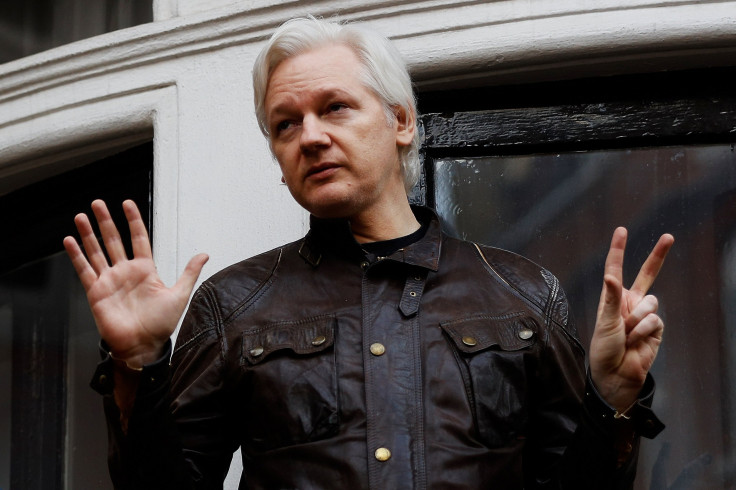
Sirota: You hear from some folks, certainly partisan Democrats, that journalists should not have reported on the leaked Podesta emails. The argument was that because you didn’t know the motive of the people who gave WikiLeaks the documents, and because the leaked documents could end up helping Trump, they shouldn’t have been reported on. What is the responsibility of journalists when facing information that has been leaked? How much should they take into account the political ramifications of reporting on them and the political motives of those who are leaking them? Let's say journalists knew that the WikiLeaks trove was somehow linked to the Russian government. Would it be wrong for journalists to report on the documents if they knew that?
Greenwald: Absolutely not. It would be wrong not to. I think anybody who makes this argument has no understanding of journalism. Journalists have one duty and that duty is to take information that they become aware of that the public has a right to know, that informs the public's understanding of events in the public interest, and report on it. Period. Their job is not to assess the political impact of it. It's not to have a principle that says, "We're only going to publish information when our sources are acting with pure motives."
In fact, there was this really interesting case during the campaign, which is the New York Times, as I'm sure people remember, received in the mail a copy of one year of Donald Trump's tax returns. I forget what year it was. It might have been 2000. It might have been 1995. It was the one that showed this huge deduction.
The way they got it was it literally just arrived in the mail. Someone just dropped it in a mailbox and sent it to the New York Times. When they got it, they had no idea who sent it to them. They have no idea who their source was. To this date, they have no idea who their source is. Therefore, given that they don't know who their source is, they obviously don't know what the source's motives were.
The journalist who did the story, David Barstow, who has won two Pulitzer Prizes and is one of the best investigative journalists in the country, was on NPR. They asked him about that. They said, "Why did you publish this story? You have no idea who the source was or what their motives were." Obviously, they had authenticated the documents, but they didn't know who sent it to them.
What he said was, "Look, when you're a journalist, you don't care at all about what your source's motives are." Some of the most important stories in the world have come from sources with terrible motives. People who are just trying to be vindictive, to try and get vengeance on somebody they dislike. Somebody who has a political agenda that they're trying to use the media to advance.
Most of the time, being humans, sources have at best mixed motives, and oftentimes really terrible ones. When you're a journalist, that makes no difference whatsoever. Your only question is, "Is this information, once authenticated, in the public interest?" If it is, then your duty, not just your right, but your duty is to report it.
Just imagine how creepy it would be if there were all these materials released that shed light on some of the powerful political people in the country, like John Podesta and the Clinton campaign, that were incredibly revealing about how the DNC functioned during the primary, and the shenanigans and wrongdoing that DNC officials engaged in that they ended up having to resign over, and journalists just black it out? Just said, "We're going to pretend this doesn't exist. We're not going to tell the country about it. We're not going to tell our readers about it because we're worried that maybe it came from the Russians or from people with bad motive." That would be journalistic censorship of the most nefarious kind.
While I understand the frustration of Democrats that all of these emails ended up being leaked from John Podesta, but not from Kellyanne Conway, or about the DNC, but not the [Republican National Committee], that's just how it is. You can only publish what you get. A lot of times media outlets only get information about one side, but not the other. It's their absolute duty to report it.
Sirota: During a discussion on this podcast about the Russia situation, Sen. Elizabeth Warren said hacking and cyberattacks are being used as a weapon against the United States. If that’s true, does that make American journalism and the American media complicit in the use of that weapon?
Greenwald: I think the key is all about roles, all about your duties in what it is that you're doing. I've used this analogy before, but I'll use it again because I think it's so relevant.
Let's imagine that people assume Donald Trump was going to win the election. It was mid-October. Instead of being behind in the polls, he was actually ahead in the polls. Let's assume that there is this assumption that he's this grave, existential threat to democracy, and to freedom, and to the American republic.
Let's further assume that one day Donald Trump has a heart attack in October, or maybe he's shot, and he's rushed to the emergency room. His condition is life-threatening. You have the doctor, the attending doctor at the ER, who knows that he has two choices. He can either do everything in his power to treat Donald Trump to the best of his abilities and save his life, or he can do just a little bit less and let him die because he feels like, "Look, my duty as a human being is to prevent Donald Trump from getting into office. I feel like this is a way that I would be battling fascism."
Do we want a doctor, in that case, to make those kind of decisions about when they should do their jobs and when they shouldn't based on political ramifications? I sure as hell don't. The reason is is because that's not the doctor's role.
Yes, Elizabeth Warren is right that cyberattacks are a weapon. It's a weapon, by-the-way, that the United States uses more aggressively and more prolifically than any other country. But it's also true that Russia uses it as well. When she says that, the question then becomes whose job is it to protect against that weapon?
For me, the job is not the job of journalists. It would not be the response of journalists to say, "We want to combat this cyberweapon by blocking out… ignoring, censoring, suppressing any news that we think might come from cyberattacks, no matter how relevant it is to the public discourse."
Because I would not want a doctor ever deciding that he has the right, or she has the right, not to give the best medical treatment possible, I would never want journalists deciding that it's justifiable to refuse to report on information in the public interest. That problem, the problem of cyberweapons, is for Elizabeth Warren and her colleagues in the Senate — and the NSA, and the Pentagon — to figure out how to guard against.
It's the worst solution possible to say, "Journalists should start suppressing information." Just to underscore that point, let's just imagine that there was a hack of Donald Trump's accounting firm. Somebody got ahold of all of his tax returns that showed serious financial impropriety. If you want to be lavish about it, assume that it even shows covert payments from the Russians, or whatever.
This information became available because the Chinese hacked it to harm Trump. Or the Saudis hacked it. Or the Russians hacked it. Is anyone going to argue that the New York Times, or the Washington Post, or any media outlet, should refuse to tell the public about the wrongdoing in those tax returns because of suspicions that a foreign state hacked it using cyberweapons? Of course not. I think that that is pretty conclusive about what people view the role of journalists as being. It should just be applied consistently.
Sirota: Many of the leaks about Trump and Russia that are being reported in the media are anonymous, which makes them almost impossible to authenticate or validate. How much should we trust what's coming out of the leaks and the insinuations and allegations about Russia? How suspicious should we be that this is coming from a national security agencies like the FBI and CIA that don’t very much like Donald Trump? And if you are suspicious of their motives, do you think that the allegations and insinuations about links between Trump and the Russian government are legit? Do you think we are about to see some bombshell story tying all of it together?
Greenwald: I do very much share your concern about how news is being delivered. As I said before... the New York Times and the Washington Post have undergone this amazing reputational renaissance over the last four months. The media has languished for so long among the most hated and distrusted institutions. Suddenly, they're viewed as these kind of heroic warrior figures against repression and fascism, all because they're hostile to Trump.
I don't want to say all of the work — because there's a lot of good reporting that's being done, genuinely good investigative reporting, and the media should be adversarial to whoever wields power — but if you look at what most of the big scoops from those two newspapers actually entail, in almost every case, the big ones about Trump scandals I mean, they are people inside the intelligence community who are given anonymity, who make unverified claims about Donald Trump and his close associates that are designed to undermine him.
I had thought, I genuinely had believed, that the lesson that we all learned from 2002, 2003, is that when there is extremely consequential reporting being done overwhelmingly by anonymous intelligence officials without verification or corroboration, that we need to be extremely skeptical of what it is that they're claiming. In part because sometimes they deliberately disseminate disinformation, in part because they're looking at things from a very narrow and myopic perspective, in part because they're just sometimes gravely wrong about things.
When I read in the New York Times that an intelligence official has told the New York Times that a memo by Jim Comey, that the New York Times isn't allowed to see, said that Trump said that he's hoping Comey can stop the investigation into Michael Flynn, or when the Washington Post says that there's a person very close to Trump, according to an anonymous intelligence official, who has become a person of interest in the investigation, which is an extremely vague term, I don't really find these articles very helpful at all. Because there's no way, as you said, to sort through the truth.
How do we know whether it's true what the Comey memo says, what the state of the investigation is, if the people who are telling us about them are remaining anonymous, are part of a community that [is] deliberately and is very skilled in disseminating disinformation and deceit, and has a very clear agenda of undermining the Trump presidency? I am very concerned about the fact that most of the news that we're now getting is being shaped, and dictated, and driven by the anonymous intelligence community sources who have done so much damage.
I'm also just secondarily concerned about how heroic they are now regarded. People love the CIA and the FBI because they're viewed as these institutions that can stop Trump. While Trump can do a lot of damage, so can those institutions, and they have historically.
As far as the question of collusion is concerned and big smoking guns, my position from the beginning has always been the same, which is that because I'm so disturbed about how the stories have played out with all of these leaks and all of these uncorroborated claims where people just pick and choose whatever they want to believe based on what's most pleasing, we need to have a serious, credible, sober investigation that has the authority and the power to collect it all, and then disclose it to the public. I think we now finally have that with the appointment of Robert Mueller, who is universally respected in D.C., across the aisle, who has subpoena power. He's going to get all of the information about all of these questions and finally disclose it to the public in an orderly and structured way.
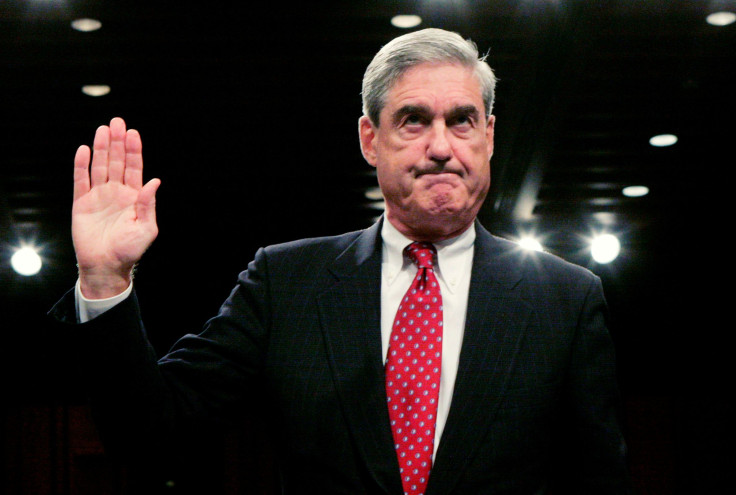
My own personal view is that there are probably instances of criminality. I wouldn't be surprised if [former Trump campaign chairman] Paul Manafort ends up getting indicted for financial activities unrelated to the Russian hacking. Or if some low-level person like [former Trump campaign policy adviser] Carter Page gets indicted. But I just have to believe that if there's some smoking gun out there of Trump collaborating with the Russians on hacking, given how everything else has leaked, how the intelligence community has thrown everything they have at Trump, I would have to believe that we would know about that by now. We don't. There's been no evidence of collusion that we know of. But I'm glad there's finally going to be an investigation that I think most people will end up trusting that will just say one way or the other, and we no longer have to rely on gossip, and innuendo, and crazy conspiracy theorists, and anonymous sources laundering their claims to the Times and the Post.
Sirota: Do you think major media organizations' sudden interest in adversarial journalism represents a long-term change in the journalism industry? Or do you think this is just a momentary reflection of hostility toward Trump, but not a general shift in the media's posture?
Greenwald: Those of us who have been criticizing the media for a long time, and you and I have had similar approaches in this, have been very critical of the fact that the media has been insufficiently adversarial to those who wield power, have refused to call lies from high officials lies. They're usually eager to just present both sides, and neutrally wash their hands of it, and let other people decide, and just lacking the adversarial, aggressive spirit, and yet suddenly they now have all of that because of their hatred for Donald Trump.
I don't know. It's possible that new generations of journalists will view this kind of journalistic approach as the proper one, even beyond Donald Trump, but I seriously doubt it. The reason I seriously doubt it is because these media outlets are structured and designed, and they're culturally geared toward, defending status-quo institutions, to defending factions of power.
In one very superficial way, it seems like they're being adversarial to power by being so hostile to the president. But there are a lot of powerful factions in the country besides the president, almost all of whom hate Donald Trump. Those are the powerful factions that these media outlets continue to serve. They're serving the interest of the CIA, of the permanent military class, of the permanent financial class that's worried about Trump, that's worried about his stability.
I don't think it has been this radical, functional change in how the media performs its role in the United States. I still think they're every bit as subservient to power. It just happens to be that the person who occupies the White House is viewed as an enemy for the first time in a long time.
Those factions in power, and therefore the media, is being used as a weapon against them. As soon as there's somebody back in the White House who seems conventional and blends into the power structure, I think you're going to see a reversion to all the media practices. I do actually think that it's unique to Trump.
Sirota: You're a lawyer. You studied a lot about the law and constitutional law. George W. Bush sent the country to war on false pretenses. Barack Obama oversaw a warrantless wiretapping and surveillance system, an extrajudicial assassination program. Donald Trump has allegedly stymied an FBI investigation.
When we think about what is the threshold for impeachment, my question is: What is the threshold for impeachment? How are we supposed to think through what rises to a level of impeachment versus what doesn't rise to the level of impeachment in the context of the lawless actions that we know past presidents have taken?
Greenwald: You know, it's really subjective. It's interesting. As you know, I was over in Brazil where there was an impeachment of the democratically-elected president, Dilma Rousseff, last year. That was the thing I actually realized, was she hadn't been accused of any serious crimes. She was extremely politically unpopular. The country was suffering an economic crisis. Her base had abandoned her and so her enemies viewed it as an opportunity to finally just get rid of her by inventing this kind of very technocratic, bureaucratic rule that she broke and how she did her budget that never could have served as impeachment, and it worked because it's a political choice.
It isn't like there's some evidentiary hurdle that legally has to be cleared for Congress to be able to actually impeach Trump. I'm not really that impressed with the idea that firing Comey was obstruction of justice because obviously Comey was going to get a replacement. There are career prosecutors inside the Justice Department and the FBI well aware of whatever it is that Comey knew. I think it's much more that Trump fired him just because he didn't like him, because he started to perceive that he wasn't sufficiently loyal. That doesn't seem like a crime to me, but you could turn it into one probably to justify Trump's impeachment that would at least pass muster of a court.
I think the other side of it, though, the big question is I think there's a real danger, just like happened in Brazil actually, that what will become immediately apparent is that the reason Trump is being impeached is not because people believe there's solid evidence that he committed real crimes, but because people believe the outcome of the election was the wrong one and want to find a pretext for undoing it, for reversing it. In other words, it's kind of like an attack on democracy. We think the voters chose wrong and we want to now take out the leader that the voters put into office, that they voted for and wanted to run the country. I think there's a real danger if that happens that can not only set a terrible precedent, but I think Trump voters will perceive it that way, that their votes are being nullified and denied, and that that can end up creating some real instability, and maybe even worse, in the United States.
Obviously, if serious evidence, like convincing evidence of serious crimes committed by Donald Trump were actually uncovered, I would be fully in favor of impeachment no matter the results. But I really don't think we have that yet. We may have it or we may not, but I think we have to be very careful about not allowing impeachment to be used by elites to undo elections where they think the outcome was bad.
© Copyright IBTimes 2025. All rights reserved.






















